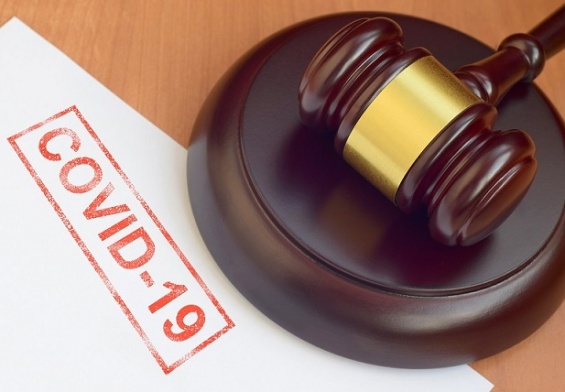Overdue invoices are a pain every kind of business experiences at some point. Late payments drain cash flow and increase stress. Sometimes, they can even threaten an entire operation. Collecting on them is usually a simple process, but common, avoidable mistakes can spoil that pot.
New Jersey has strict laws around debt collection, and federal rules make them more complex. One wrong move can turn a valid claim into an expensive legal problem. That’s where a collection attorney in NJ can be a big help.
Let’s talk about five common errors companies make when chasing unpaid invoices in New Jersey. These mistakes range from ignoring legal requirements to waiting too long for professional help. Each error reduces your chances of getting paid.
Without understanding these pitfalls, you might never be able to recover money you’re owed. That’ll cause a lot of frustration and financial strain, unless you work with a trusted collection attorney in NJ.
1. Failing to Understand Federal and State Debt Collection Laws
Dismissing the laws around debt collection is an easy way to lose out on boatloads of cash. The Fair Debt Collection Practices Act (FDCPA) sets strict limits on collectors. Many people think it only applies to consumer debt, but courts have extended it to attorneys and agencies involved in litigation and landlord disputes.
New Jersey adds its own layer of rules. The state requires collection agencies to file a bond and register with the Division of Revenue. If you operate across state lines, you may also need to consider whether and how you can collect on an out-of-state judgment in NYC.
Businesses that skip these requirements may find courts rejecting their claims. Worse yet, they could face penalties for noncompliance.
Some companies think a valid invoice is all they need to collect. There’s more to it than that. Even with a valid invoice, legal missteps like demanding payment without proper disclosure or improper serving can blow up your case.
These errors can also expose your business to lawsuits from debtors claiming unfair practices. So, what started as collecting money owed can become defending against counterclaims.
Working with a licensed collection attorney in NJ ensures the compliance you need. They understand how to prepare notices correctly and file claims properly.
You’re wasting time and resources by ignoring these details. It also sends the wrong message to debtors. Without prioritizing compliance, you’re giving up your rights and sending the message you don’t care about recovery.
2. Using Aggressive or Harassing Collection Tactics
Unpaid invoices are frustrating. It’s normal and valid to be upset by them, but you can’t let that cloud your judgment. Persistence can pay off, but now when the law deems it too aggressive or harassing.
The FDCPA and Consumer Financial Protection Bureau guidelines prohibit excessive or abusive contact. Debt collectors cannot call before 8 a.m. or after 9 p.m. They also cannot contact someone at work if they know the employer prohibits it.
The law sets clear limits on frequency too. Calling more than seven times in seven days about the same debt creates a presumption of violation. You’re opening your business up to lawsuits and reputational damage by ignoring these limits.
Communication tone matters just as much as frequency. Avoid threatening language; it’s prohibited. So is making misleading statements about legal action. Implying you’ve taken such actions when you really haven’t is a violation of federal law.
Bullying debtors often pushes them into seeking legal help, even if they wouldn’t have before. It makes them more likely to fight your claims, which complicates recovery and increases costs. Even valid debts become harder to collect when unlawful tactics undermine your credibility in court.
A collection attorney in NJ knows the proper way to contact debtors legally. Attorneys can send official demand letters that carry weight. They can pursue claims in court when necessary, eliminating risky self-collection strategies.
This professional approach improves results while protecting your business from liability. By focusing on lawful, respectful methods, companies increase recovery chances.
3. Adding Unauthorized Fees or Interest
Some creditors misrepresent the amount owed to them, and that’s another huge mistake. Invoices commonly include late fees, attorney fees, or added interest. But the law requires explcitly agreeing to these charges by a signed contract. Without that, they can’t be collected.
New Jersey courts have handled cases where landlords and creditors improperly listed legal fees as part of “rent” or debt owed. The FDCPA clearly states that collectors cannot pursue amounts not expressly permitted.
Misrepresenting charges risks dismissal of your claim. It’s also a deceptive business practice. Even if the debtor pays initially, they may challenge the payment in court later. This can lead to refunds or penalties.
Many businesses feel that since the debtor caused the delay, adding penalties seems fair. But life isn’t fair, and neither is the legal standard. Enforceability depends strictly on written agreements and statutory rules.
Adding unauthorized amounts transforms a legitimate debt into a disputed claim. This slows recovery and increases legal risks. So, it’s crucial to stick to amounts clearly owed under contract or law.
A collection attorney in NJ carefully reviews contracts and invoices to ensure only valid amounts are pursued. If extra fees are contractually allowed, the attorney knows how to document and enforce them properly. In fact, a contract attorney can save your business from disputes long before they ever reach court.
Attorneys can also help draft future agreements that clearly outline late fees and interest. This makes them enforceable from the start. Sticking to the actual, legally owed balance keeps your case clean and credible.
4. Ignoring Proper Documentation and Bonding Requirements
Every collection case worth its salt starts with documentation. Missing contracts, unsigned invoices, or lack of delivery proof all suck the vitality out of your claim. For online sellers, this starts even earlier with ensuring their websites have the legal documents every eCommerce business needs in place.
Courts need clear evidence that debts are valid and enforceable. Without proper documentation, even strong cases can collapse. This means having all your paperwork organized and complete before taking action.
New Jersey businesses must also understand collection agency requirements. Anyone collecting debts on behalf of another party must file a $5,000 bond with the state. This protects consumers and ensures accountability.
Using an unlicensed or unbonded agency can jeopardize your entire collection process. It also opens the door to legal challenges that could have been avoided.
Even when documentation exists, poor organization causes delays. Businesses sometimes appear in court with incomplete records. This allows debtors to dispute claims more easily.
A missing invoice here, an unsigned delivery receipt there, or an outdated statement can weaken your case significantly. Courts expect precision when ruling on financial obligations.
A collection attorney in NJ ensures all necessary documentation is ready before legal action begins. Attorneys also confirm that third-party collectors meet bonding and registration rules.
They know how to present evidence effectively and nullify opportunities for debtors to contest debts. Proper documentation and compliance support stronger claims and prevent costly procedural errors.
5. Waiting Too Long to Involve a Collection Attorney
Perhaps the most damaging mistake is delaying professional help too long. Many businesses try collecting overdue invoices alone for months or even years. During this time, several problems develop.
Records may get lost. Debtors may move or change contact information. The debt may become harder to enforce due to fading evidence or witness memory.
Generally, the longer the delay, the lower the recovery rate becomes. Time works against collection efforts in many ways.
Delays also weaken the urgency of claims. Debtors often assume that if no legal action happens after several months, they can continue avoiding payment. The longer you wait, the more confident they become about ignoring their obligation.
Some debts even become uncollectible if they pass the statute of limitations. This timeframe varies depending on the type of contract involved, making timing crucial.
A collection attorney in NJ provides immediate escalation. Attorneys can send demand letters that carry legal weight. They can file lawsuits when necessary and secure judgments enforceable through courts. Knowing what happens after you win a lawsuit is also key to understanding how collections play out in the long run.
They can also explore options like liens or wage garnishments when appropriate. Acting early preserves your rights and sends a strong signal that obligations cannot be ignored.
Businesses often underestimate how quickly accounts become stale. By involving a lawyer early, you increase recovery chances and reduce the risk of writing off debts as losses.
Partnering with a collection attorney lets you focus on running your business. It gives you the confidence that your legal needs are handled. Early action leads to better outcomes and protects your financial stability.
Protect Your Business with Smarter Invoice Collection
Every unpaid invoice impacts your business. But, chasing debts incorrectly can cost even more. Mistakes in collection create unnecessary risk, from ignoring legal rules to using aggressive tactics.
A collection attorney in NJ ensures your efforts are effective and legally sound. With experienced guidance, you can avoid common pitfalls, protect your rights, and increase your recovery rate.
Acting early represents the best strategy to keep cash flow steady and protect your bottom line. Don’t let unpaid invoices drag down your business when professional help is available.
Key Takeaways for NJ Businesses
Collecting overdue invoices in New Jersey demands following the law and protecting your business reputation. Companies that make collection mistakes risk more than delayed payments.
They may face lawsuits, compliance penalties, or permanent loss of income. So, the smart approach focuses on prevention and proper procedures.
Review contracts to ensure late fees and interest are clearly authorized. Keep accurate records from the start. Most importantly, involve a collection attorney in NJ early in the process, or even consider the broader benefits of working with a business lawyer in New Jersey.
By staying compliant and strategic, you can transform collections from a liability into a structured path toward financial stability. Your business deserves to get paid for the work you do.
Resources:
https://www.consumerfinance.gov/compliance/amicus/briefs/fein-such-kahn-shepard-allen/
https://www.nj.gov/treasury/revenue/filecollagbond.shtml
https://law.justia.com/cases/new-jersey/appellate-division-published/2006/a5903-04-opn.html




